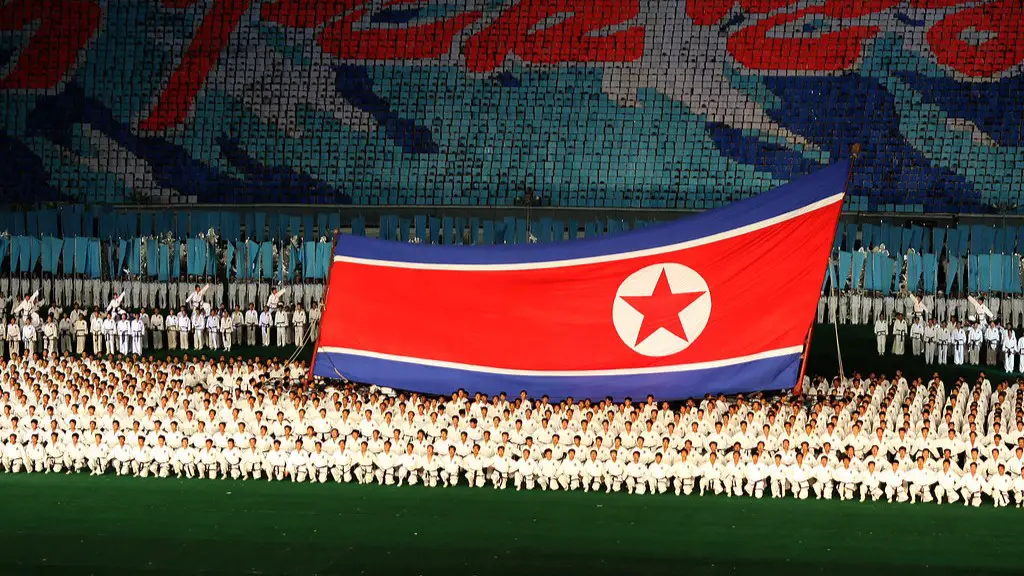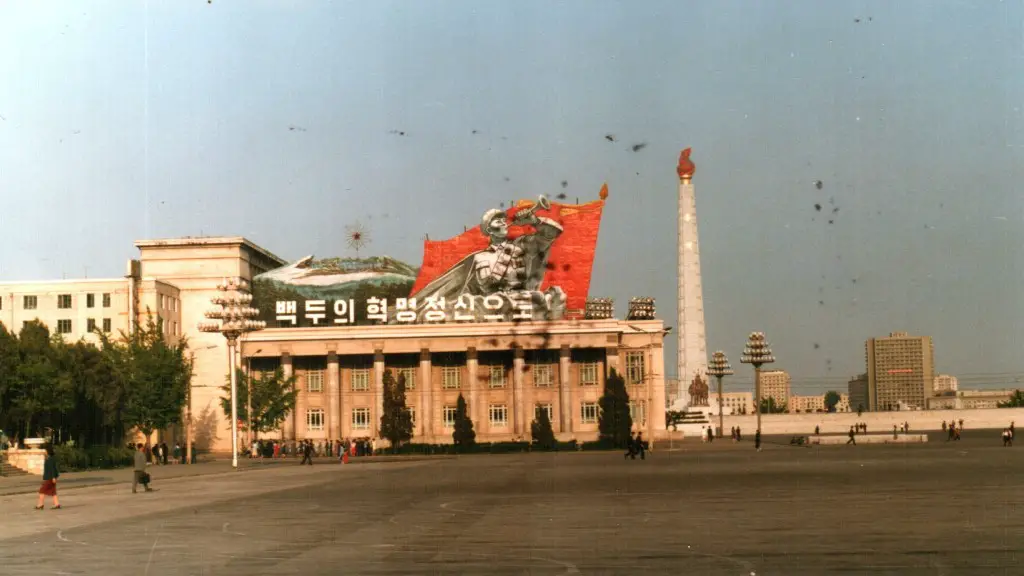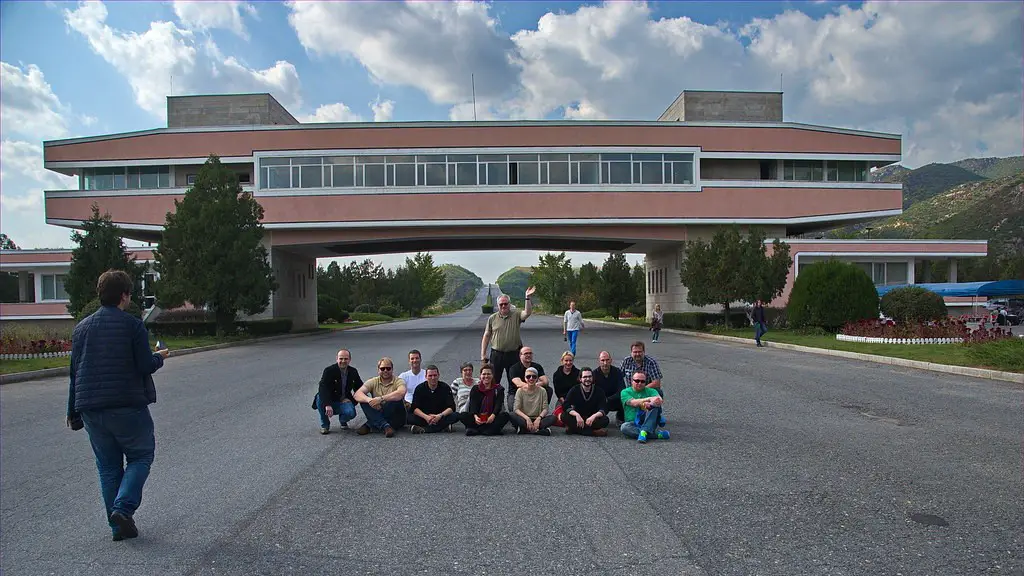Background Information
The United States of America and North Korea have had a very strained relationship for many years now. US-North Korea relations have seen a range of different events since the end of the Korean War in 1953, ranging from economic sanctions to nuclear testing. During this span of time, the two countries have never actually gone to war – though both have engaged in skirmishes, with the US supplying aid to the South Koreans in various engagements over the years.
For many years now, rhetoric from both sides has indicated that they view each other as enemies, with US President Donald Trump leading this conversation with his tweets and off-the-cuff remarks. As such, the prospect of war between the two sides has increasingly been at the forefront of the public discussion – leading to the question of: Who would win if it came to a full-scale war between the US and North Korea?
Relevant Data
The US has the world’s strongest military, according to the GlobalFirePower.com rankings – which cites the US as having a total aircraft strength of 13,444, with 4,192 tanks and 415 naval vessels. To put this further in perspective, the US is also reported to spend just over $600 billion on its military every year.
In comparisons, North Korea isn’t even in the top 10 of the rankings. In terms of aircraft strength, the North Koreans can reportedly only muster 809 planes – with a tank count of 4,200 and a naval fleet of 967 vessels.
Perspectives from Experts
Gregory Toothman, a military analyst with the CATO Institute, believes the US would have a clear advantage in such a conflict.
“The US has a technological advancement that North Korea simply cannot match,” Toothman stated. “Their military hardware is out of date and the US can deploy sophisticated weapons systems, such as Stealth Bombers, that North Korea does not possess.”
James Jones, a former US General and the former NATO Supreme Allied Commander for Europe, has a more nuanced opinion.
“North Korea does have some advantages in terms of their geographical location,” Jones explained. “They have the ability to use their rugged terrain and military fortifications to slow US forces and limit US mobility. In addition, the North Koreans are very well trained in guerrilla warfare – and they could deploy those tactics to great effect in a real conflict,” he said.
Insights and Analysis
It is clear that, even if the North Koreans did have some advantages in terms of their geographical terrain and tactical training, they would still face an uphill battle if they ever chose to go to war with the US. The US has, not just a quantitative advantage, with greater numbers and resources, but also, a qualitative edge.
The US military possesses, not just superior weapons and equipment, but also, advanced training, cutting-edge intelligence systems, experienced leadership and a global network of allies. While North Korea does have some useful capabilities, such as their nuclear arsenal and missile technology, these would be more for deterrence and for limited military engagements – rather than for a full-scale war.
Estimate of Potentials Consequences
It is difficult to predict the exact nature of the consequences that would arise from a war between the US and North Korea, but it is reasonable to assume that it would be extremely costly, both financially and in terms of human life. The US and its allies would likely be able to win out in the end – as other conflicts have demonstrated that the US and its allies have the power to prevail in asymmetrical wars.
On North Korea’s part, a war would mean the ultimate destruction of their regime – as they simply cannot compete with the might of the US. This could spell disaster for the North Korean people, who have been subjected to the oppressive rule of the Kim family’s dictatorship for over 7 decades now.
Future of North Korea’s Economy And Governance
It is unclear what the future would hold for North Korea in the aftermath of a war with the US – but it is reasonable to assume there would be an immense amount of hardship. The US and its allies would likely set up a new government and economy for the Korean people – though the exact manner and form of this process remain to be seen.
In terms of the economic consequence, the US and its allies would likely offer a plethora of aid in terms of food, medical supplies, energy and other sources in order to help maintain the stability of the region. This would also play a role in helping to expedite the rebuilding efforts of the North Korean economy – so that it can eventually achieve parity with its neighbors and the rest of the world.
International Diplomacy
One can only hope that, instead of war, the US and North Korea can find a way to peacefully resolve their differences. The US has already held talks with North Korea in the past – such as in 2018 – and it is crucial that this mode of diplomacy is continued going forward.
Ultimately, both sides need to understand the importance of compromise and mutual understanding if they are to make any headway. This means making concessions that are beneficial to both sides, instead of holding fast to an unreasonable position with the aim of achieving complete victory. This kind of diplomatic process is not easy, and will require trust and cooperation from both sides, but could be the only way to avoid a full-scale war.
Examination of Military Strategies
In the event that negotiations fail and war does become inevitable, then the US will have the upper hand. The US’s overwhelming military superiority and its experience in waging asymmetrical warfare means that it is well-positioned to prevail in any such conflict.
It is likely that the US would use a mix of air-based bombings and ground operations to break North Korean forces as quickly as possible. Furthermore, the US would also likely use its strategic capabilities, such as long-distance missile strikes, cyber warfare and special operations to further weaken North Korean positions.
Analysis of North Korean Military Tactics
On the other hand, North Korea too could hold its own in a potential conflict. North Korea’s military tactics are heavily focused on guerrilla warfare and asymmetric combat, which could be valuable in a war against the US.
What’s more, North Korea’s mountain terrain could be used to its advantage – enabling North Korean forces to use their stealth tactics and bunker fortifications to limit US mobility. North Korea also possesses nuclear weapons and has previously demonstrated their use in limited engagements. Therefore, although North Korea is not equipped to fight a full-scale conventional war, it could still prove to be a formidable opponent by using unconventional strategies.
Exploration of Decision Making Process
Ultimately, the decision to go to war or not lies solely in the hands of the US and North Korean governments. Both sides have their own motives and ambitions, and it is these factors that will ultimately shape the outcome of any potential conflict between them.
For the US, it is important that the government takes into consideration the risks associated with a full-scale war against North Korea – considering the human cost, the economic burden and the potential for greater instability in the region. On the other hand, North Korea must also understand that its nuclear capabilities are not enough to deter the US’s overwhelming military might – and must take steps to de-escalate the tensions.


